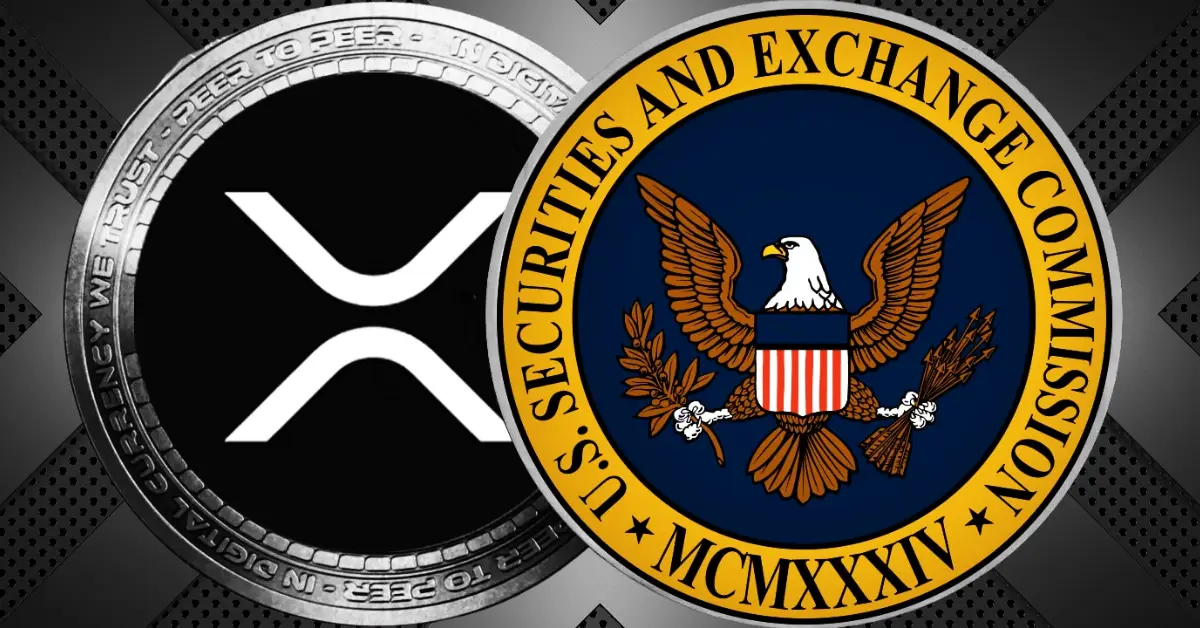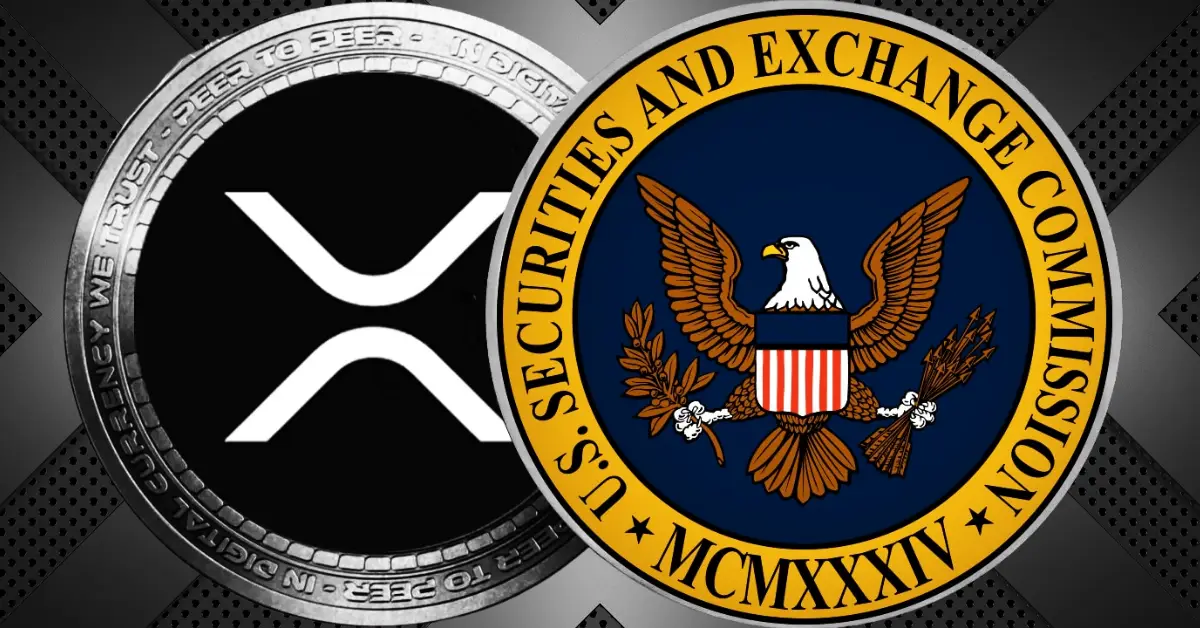The legal battle between Ripple Labs and the U.S. Securities and Exchange Commission (SEC) has been a defining narrative in the cryptocurrency space, shaping regulatory discussions and market sentiment for years. As of late June 2025, the case remains unresolved, marked by unexpected twists and turns that have complicated the path to a definitive conclusion. Initially framed as a landmark case with the potential to redefine the regulatory framework for cryptocurrencies in the U.S., the Ripple vs. SEC lawsuit has evolved into a complex negotiation involving settlements, appeals, and the intricate legal status of XRP. This report examines the latest developments, key legal perspectives, and potential future outcomes, providing a comprehensive analysis of a case that continues to captivate the crypto community.
Key Players and Their Positions
The Ripple vs. SEC case involves several key stakeholders, each with distinct positions and motivations:
- Ripple Labs: Ripple, the company behind XRP, has consistently maintained that XRP is not a security and that the SEC’s claims are baseless. Ripple seeks to operate without the regulatory constraints and penalties that the SEC is attempting to impose. The company has argued that XRP functions as a currency or utility token rather than an investment contract, emphasizing its use in cross-border payments and remittances.
- U.S. Securities and Exchange Commission (SEC): The SEC contends that Ripple’s sales of XRP constituted unregistered securities offerings, violating federal securities laws. The agency aims to enforce compliance with securities regulations and prevent future violations, asserting that Ripple’s actions misled investors and required regulatory oversight.
- Judge Analisa Torres: Presiding over the case, Judge Torres has made several pivotal rulings, including the determination that XRP is not a security when sold on public exchanges. Her decisions have significantly influenced the trajectory of the lawsuit, shaping the legal arguments and strategies of both parties.
- Bill Morgan: A prominent legal expert closely following the case, Morgan provides insights and analysis, often correcting misconceptions and clarifying the implications of court rulings. His commentary has been instrumental in dispelling myths and providing a nuanced understanding of the legal nuances involved in the case.
Recent Developments
The Ripple vs. SEC case has seen several significant developments in recent months, each with implications for the case’s resolution and the broader cryptocurrency market.
Rejection of Joint Request and Settlement Stalls
On June 27, 2025, Judge Torres rejected a joint request by Ripple and the SEC to lift a permanent injunction and reduce Ripple’s penalty. This decision disrupted the settlement process, introducing further uncertainty about the case’s resolution. Legal commentators like Bill Morgan have noted that the Ripple-SEC settlement process has stalled, highlighting the challenges both parties face in reaching a mutually acceptable agreement. The rejection of the joint request suggests that the court remains skeptical of the proposed terms, potentially requiring further negotiations or adjustments to the settlement agreement.
SEC’s Appeal and Cross-Appeal
Despite earlier reports and claims from Ripple, the SEC’s appeal remains active as of late June 2025. Bill Morgan has been diligent in correcting misinformation surrounding the case, confirming that the SEC disagrees with Ripple’s assertion that the appeal and cross-appeal are settled. Ripple had decided to drop its cross-appeal in its nearly five-year-long legal battle against the SEC, but the agency’s ongoing appeal maintains legal pressure on Ripple. This ongoing appeal underscores the SEC’s commitment to its position and its willingness to pursue the case through the appellate process if necessary.
Ongoing Debate Over XRP’s Legal Status
Attorney Bill Morgan has consistently refuted claims that XRP lacks legal clarity, labeling such assertions as “the biggest lie.” Despite rulings that XRP is not a security when traded on public exchanges, the overall legal status remains a point of contention, particularly concerning institutional sales and Ripple’s activities. Morgan has also rejected the belief that Judge Torres’ next ruling will redefine XRP’s status, tempering expectations within the crypto community. His insights emphasize that the legal status of XRP is already well-established in the context of public exchanges, and further rulings are unlikely to alter this determination significantly.
Settlement Talks and Potential Delays
Rumors of potential delays pushing the case into 2026 have circulated, but Bill Morgan has dismissed these as unlikely unless Judge Torres rejects the latest joint motion filed by both parties. Morgan believes such an outcome is improbable and would only occur if settlement talks collapse and both Ripple and the SEC pursue appeals. As of early June 2025, Ripple and the SEC had a deadline of June 16 to reach an out-of-court resolution, requiring the SEC to submit a report to the court or continue the appeal process. The deadline underscores the urgency of the negotiations and the potential consequences of failing to reach an agreement.
Mysterious Filings and Contradictory Claims
The case has also seen its share of unusual developments. A mysterious filing by a third party named Keener was rejected by the SEC, which asserted that the case is still on appeal. This contradicted Ripple’s statement that the SEC had dropped its appeal. The contradictory claims highlight the complexity and opacity of the legal process, as well as the challenges of navigating misinformation and conflicting narratives. The rejection of Keener’s filing suggests that the SEC remains actively engaged in the case, further complicating the path to resolution.
Legal Perspectives and Analysis
Bill Morgan’s insights offer a crucial understanding of the legal nuances surrounding the Ripple vs. SEC case. He has consistently clarified misconceptions, emphasizing that the upcoming rulings will not redefine the legal status of crypto assets in the U.S. His analysis highlights the importance of distinguishing between different types of transactions and the context in which they occur. For example, Morgan has emphasized that the determination that XRP is not a security when sold on public exchanges does not necessarily apply to all transactions involving XRP, particularly those involving institutional sales or other specific contexts.
Morgan has also highlighted an “odd development” where the SEC rejected Keener’s filing, asserting that the case is still on appeal, contrary to Ripple’s claims. This development underscores the importance of verifying information and the potential for misinformation to complicate the legal process. Morgan’s commentary provides a valuable counterbalance to the often speculative and sensationalized narratives surrounding the case, offering a more grounded and nuanced perspective.
Potential Outcomes and Future Steps
The Ripple vs. SEC case could unfold in several ways, each with significant implications for the cryptocurrency market and regulatory landscape.
Settlement Approval
One possible outcome is that Judge Torres could eventually approve a revised settlement agreement between Ripple and the SEC. This would likely involve Ripple paying a fine, as well as agreeing to certain operational restrictions. A settlement could provide a measure of certainty and stability for Ripple and the broader cryptocurrency market, allowing the company to continue its operations without the burden of ongoing litigation. However, the terms of any settlement would be crucial, as overly restrictive conditions could limit Ripple’s ability to innovate and compete in the market.
Continued Litigation
If the settlement talks collapse and both parties pursue appeals, the case could continue for an extended period. This would involve further legal filings, arguments, and potential rulings on specific aspects of the case. Continued litigation would likely prolong the uncertainty and regulatory ambiguity surrounding XRP and other cryptocurrencies, potentially impacting market sentiment and investor confidence. The appellate process could also introduce new legal precedents and interpretations, further shaping the regulatory framework for cryptocurrencies in the U.S.
Impact on XRP and the Crypto Market
The resolution of the Ripple vs. SEC case has significant implications for XRP and the broader cryptocurrency market. A favorable outcome for Ripple could boost confidence in XRP, potentially leading to increased adoption and investment. It could also provide regulatory clarity for other cryptocurrencies, helping to establish a more predictable and stable environment for innovation and growth. Conversely, a negative outcome could create uncertainty and negatively impact XRP’s value, potentially deterring investors and slowing the development of the cryptocurrency ecosystem.
Speculation on Hidden Agendas
Some crypto experts have speculated that the Ripple vs. SEC lawsuit may be staged to suppress XRP’s price while Ripple builds global financial ties behind the scenes. While this theory is contentious and lacks concrete evidence, it reflects the level of scrutiny and speculation surrounding the case. The prolonged legal battle and the associated uncertainty have undoubtedly impacted XRP’s price and market performance, leading to theories about potential hidden agendas or strategic motivations. However, such speculation should be approached with caution, as it often lacks substantive evidence and can contribute to misinformation and market volatility.
Conclusion: A Fragile Truce or Prolonged War?
The Ripple vs. SEC saga continues to be a captivating legal drama, marked by unexpected twists and turns that have complicated the path to resolution. With Judge Torres rejecting the joint request, the settlement process has clearly encountered a significant hurdle. Despite claims and counterclaims, the SEC’s appeal remains active, keeping Ripple under legal pressure. The future of the case hinges on whether Ripple and the SEC can overcome their differences and reach a mutually acceptable settlement. If they fail, the legal battle could drag on, leading to further uncertainty and potentially reshaping the regulatory landscape for cryptocurrencies in the United States. Whether this ends with a fragile truce or a prolonged war remains to be seen, but one thing is certain: the Ripple vs. SEC case will continue to be a landmark event in the history of cryptocurrency regulation. The outcome of this case will have far-reaching implications for the cryptocurrency industry, influencing regulatory approaches, market dynamics, and the future of digital assets in the U.S. and beyond.












